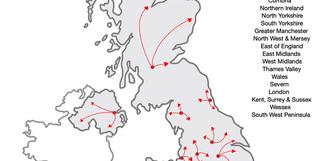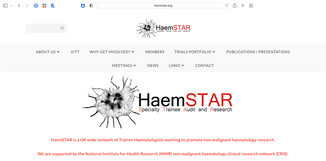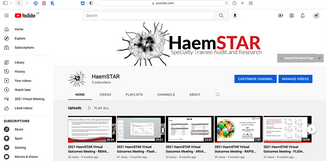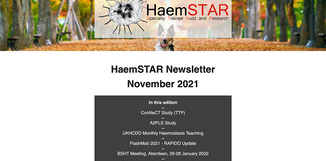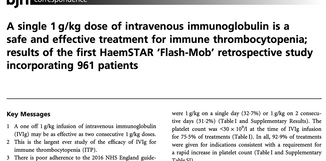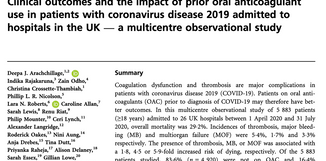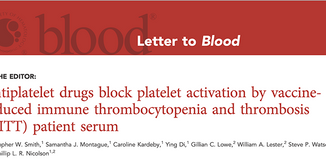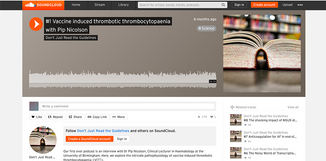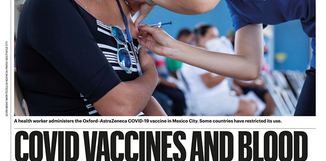- Homepage
- Discover pathology
- Competitions
- RCPath Science Communication Prize
- Previous winners
Previous winners
Past Science Communication Prize winners
-

Dr Phillip (Pip) Nicolson
FURNESS PRIZE FOR SCIENCE COMMUNICATION WINNER 2021
Dr Nicolson co-founded and now chairs the HaemSTAR network of UK haematology trainees. As well as enabling research studies to reach more patients, and helping numerous haematology registrars train in Principle Investigator skills, HaemSTAR has become a platform to enable young investigators with scientific ideas to realise those projects and deliver them. Furthermore, since March 2021, Pip has been treating patients with Vaccine-induced Immune Thrombocytopenia and Thrombosis (VITT) and collecting blood samples from them to use in research in order to understand its pathophysiology and natural history. His work in both of these fields has results in numerous studies and the publication of several research papers. Read on to find out more about Pip and what inspired him to apply for our Science Communication Prize.
Pip's public engagement activities
Click on the thumbnails below to view some of examples of Pip's work.
HaemSTAR Network
- Pip is the trainee representative on the NIHR Haematology National Specialty Group and disseminate information from this group to haematology trainees nationwide.
- He was on the organising committee of a regional ITP Patient engagement event where latest research was discussed.
- He also set up and ran a national virtual meeting where the results of six HaemSTAR-led/supported projects were discussed.
- Along with colleagues, Pip coordinated a HaemSTAR activity that resulted in 14 extra sites and just under 50% of the recruited patients in the FLIGHT trial (Bradbury et al., New Eng J Med 2021)
- He coordinated the site opening and study recruitment to enable the CA-COVID19 study to recruit over 8000 patients across 28 hospital trusts. This is reflected in two publications in the British Journal of Haematology (Crossette-Thambiah et al. 2021, Arachchillage et al. 2021).
- Pip distributed and coordinated a survey about haematology trainees’ opinions on the impact of COVID-19 on their training (Altohami et al., eJHaem 2021).
- Along with colleagues, he coordinated the site opening for REMAP-CAP as well as involving regional haematologists in the opening of the anticoagulation arm of REMAP-CAP (in submission).
- Pip was part of a team coordinating the ITP in the COVID era national research project.
- He has published results of a national ‘FLASH-MOB’ audit on IVIg use that recruited 971 patients across 38 hospital sites (Nicolson et al. BJHaem [in press]). Pip has also promoted this study through multiple talks with the main focusses being (i) explaining the methodology so other people can copy this and (ii) message that we can conserve UK IVIg supplies in the ITP setting by only using a single dose of 1 g/kg and thus saving the NHS approx. £1.2 million annually.
Vaccine-induced Immune Thrombocytopenia and Thrombosis (VITT)
Pip’s work in this field has culminated in:
- Senior / corresponding author publication on the pathophysiology of VITT including translational work describing commonly used medications that could potentially be used to treat it (Smith et al., Blood 2021).
- Communicated results of this study and expertise on other aspects of VITT as the interviewee in a ‘Meet the Expert’ session at the British Society of Haematology Annual Scientific Meeting as well as on the science podcast ‘Don’t Just Read the Guidelines’
- First author manuscript (in submission) looking at the medium / long term follow-up of VITT.
- Working as part of the national VITT consortium (collaboration between Liverpool, Birmingham, Cardiff and Genomics England) that is studying 4 key areas of VITT (epidemiology, genomics, immunology, platelet function).
- In conjunction with Public Health England and utilising the HaemSTAR network, Pip coordinated a national project on the epidemiology of thrombocytopenia in Cerebral Venous Sinus Thrombosis.
- Pip answered numerous queries from VITT patients / relatives (regionally, nationally and internationally) regarding the diagnosis and treatment of VITT.
All of the above has resulted in an interview and subsequent article detailing these efforts in the journal Nature.
Q&A with Pip Nicolson
Why did you enter the Furness Prize?
By nature I have a quiet and unassuming character and would normally be content to work diligently for the benefit of patients and the scientific community without seeking feedback or praise. My entry into the Furness Prize is entirely due to my supervisor, Dr Gillian Lowe, who strongly encouraged me to do so.
How does it feel to be the winner of this year’s Furness Prize and what effect will it have on you/your career/future science communication activities?
I feel honoured and surprised to be selected as the winner of the Furness Prize. I am a strong believer in collaborative work, both in medicine and in science, and effective and efficient communication is key to achieving this. As co-founder of HaemSTAR, the non-malignant haematology UK trainee research network, my passion has been to facilitate communication amongst budding haematologists to enable the brilliant research and audit projects performed at local level to be upscaled nationally. Not only does this give those projects more meaningful results that will make a true difference to patient care, but also at the same time it provides a peer mentoring network to enable training in research skills for otherwise research-inactive clinicians.
Why do you think science communication is important for pathology?
I think the importance of science communication has been exemplified by the UK Expert Haematology Panel response to the emergence of Vaccine-induced Immune Thrombosis with Thrombocytopenia (VITT). This condition was first recognised by UK haematologists in March 2021 and peer communication networks across the UK and the rest of the world enabled rapid sharing of experience and hypotheses. The result of which was that, within only a matter of a couple of weeks, not only had the underlying pathophysiology been identified but that this had been disseminated amongst the world’s haematologists and translated into rapid treatment algorithms that have stood the test of time. There is clearly always a need for this to be backed up by peer-reviewed publication, but the nature of the peer review process is slow and the rapid action of the UK haematology community no doubt saved countless lives as a result of positively influencing the government vaccination strategy. Clear and careful public engagement that coordinates with scientific communication is also key. This was also handled in an exemplary manner by the UK Expert Haematology Panel and avoided national panic and enable the vaccine roll-out to keep on track.
Why did you choose to pursue a career in pathology?
My first degree was in pure science, but I gradually learned that pursuing a purely scientific career would make me miss the practical (and sometimes artful) application of that science that is medicine. I thus went on to do a medical degree and begin my foundation training. It was during my foundation training that I realised that perhaps my pendulum had swung too far away from pure science. It was clear that whilst what I was doing did make a difference to the individual, I could help a wider group of people by going into a pathology speciality. I realised that, in haematology, there was a balance of treating patients face to face but also the provision of a diagnostic service for the whole hospital. This career was made yet more attractive because it was an opportunity to be embedded in a speciality that was founded on strong scientific principles, and where opportunities to become involved in shaping those scientific foundations were rife. Haematology was the perfect specialty for my personality.
Do you have any future science communication activities planned?
As part of the VITT Consortium, I am recently in receipt of an NIHR-funded grant to further study the pathophysiology of platelet activation in VITT. I intend to speak frequently and publish rapidly from this so as to inform clinicians in the UK and across the world on how to better treat patients with this novel and deadly condition. Understanding the deeper root causes of this condition are also important to help with the development of future vaccines for other conditions to avoid a recurrence of it. My work with HaemSTAR is far from over too; the network is expanding and communication links are becoming more established and efficient such that we can deliver more mass-participation projects like the “Flash-Mob” Projects and the CA-COVID19 study.
-

Dr Matthew Clarke
FURNESS PRIZE FOR SCIENCE COMMUNICATION WINNER 2020
Dr Matthew Clarke submitted a nomination for the Furness Prize at the suggestion and with the support of Dr Ali Robb (Consultant Microbiologist, Newcastle upon Tyne) who he had worked with for several years as part of the ‘Path to Success’ event and on other projects. On winning this year's prize, Matt said:
"It is a wonderful feeling to have won this year’s prize! I have been nominated on several other occasions years ago and was not successful so it is a very nice feeling and surprise! Thank you very much to the judges! Also, a huge thank you to the many friends, colleagues and teams I have worked with to enable my various projects to proceed – it could not have been done without all their input and hard work. Winning this prize will encourage me to continue pursuing my science communication projects with the general public, undergraduates and junior doctors. Having been forced to enter the virtual arena of event delivery due to COVID-19, I look forward to exploring and developing this format for other events in the future, helping to extend a wider reach to people who may be interested in knowing more about pathology and research, or who may be considering a career in the specialty."
Here are some of Matt's public engagement activities:
- A co-organiser of the RCPath/BDIAP Foundation & Undergraduate Taster Event for the past 2 years
- A founding organiser of the ‘Path to Success’ event in Newcastle since 2016
- one of four trainees (2 from the UK and 2 from the US) who authored the ‘Future of Pathology’ report and created blogs and tweets to promote the report
- A speaker for a Liverpool Medical Student Research Committee event
- Marked science projects written by college students from underprivileged backgrounds
- Interviewed Professor Sir James Underwood for the College’s video on ‘Histopathology: past, present and future’
- Facilitated the production of videos for Patient Safety Awareness Week
- Chaired the College’s virtual seminar series delivered by Professor Jo Martin called ‘The Art and Science of Practical Management’
- Published many articles in the ACP News and the College’s magazine, The Bulletin.
-

Dr Hamzah Farooq
FURNESS PRIZE FOR SCIENCE COMMUNICATION WINNER 2019
Hamzah has been involved in a wide range of activities throughout the year, in the UK and abroad, and the judges were particularly impressed by his commitment to delivering pathology-related training to undergraduates, postgraduate trainees, healthcare workers and members of the public, including giving a talk on ‘getting into combined infection training’ and developing educational videos on whole genome sequencing.
He also delivered tutorials on virological conditions to medical students and taught the basics of microbiological and virological laboratory techniques to postgraduate trainees. In addition, Hamzah has helped to raise awareness of infectious diseases and laboratory diagnostics. He presented several posters on infectious diseases including malaria, tuberculosis and HIV and also delivered talks entitled ‘introduction to HIV resistance and clinical cases’.
Here's what Hamzah had to say when he found out he had won this year's prize: "I feel very privileged to have been awarded this prize and aim to use this motivation to continue honing my skills and deliver further science communication activities in the future. Pathology is a field in which one works with a variety of multi-disciplinary teams and a diversity of patients. Communication between teams is vital in pathology for patients, healthcare workers and for members of the public to fully understand the pathological and diagnostic process. Only by communicating effectively and working together, can we aim to reduce the burden of disease and improve the quality of life of patients and the general public."
-
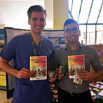
Navin Mukundu Nagesh and Bogdan Chiva Giurca
FURNESS PRIZE FOR SCIENCE COMMUNICATION WINNER 2018
2018 was the first year that undergraduates could be awarded the Furness Prize for Science Communication, and it was also the first time two nominees were awarded the prize.
Navin and Bogdan first engaged with the Royal College of Pathologists by attending the annual Pathology Summer School run by the College in 2016. They were inspired by the public engagement session delivered by Suzy Lishman and decided to get involved in National Pathology Week (NPW). They’ve organised activities for NPW ever since, and have, to date, engaged with over 1,750 members of the public and 500 school/college students across Devon and Cornwall. Their initial event in 2016 has inspired numerous students from across the UK to get involved in organising and supporting NPW over the years. One example is a series of events organised by students at UCL, who collaborated with Navin and Bogdan to raise awareness of careers in pathology across London. They were subsequently invited to deliver the “Public Engagement” session at the Pathology Summer School in 2017 where they shared experiences and offered support to attendees.
The two students have been involved in numerous other science communication activities including “Talk Cancer” which involved working with a local cancer charity to produce a book for cancer patients, written by cancer patients with honest reflections, monologues, poems and artwork to portray the range of emotions and thoughts during a cancer journey. A story was covered by ITV news charity Fixers and a short piece was recently aired. These are only a few examples of the huge range of high quality science communication projects and events these two inspiring students have developed and supported.
-
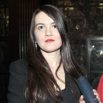
Michelle Muscat
FURNESS PRIZE FOR SCIENCE COMMUNICATION WINNER 2017
Not only was Dr Muscat in the final stages of a PhD that had a strong focus on the communication of pathology, but she had also published a novel where the main character was a Chemical Pathologist. Michelle developed and delivered numerous school workshops that explored a range of chemical pathology topics including blood tests, high cholesterol and diabetes.
Dr Muscat has also created teaching resources, writing a number of scientific publications on the best methods to communicate and teach pathology. Her very creative approach also enabled her to reach diverse audiences through poetry, theatre and social media. Overall, Michelle impressed the judges both with the quantity and quality of the science communication work she undertook.
-
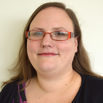
Dr Elaine Cloutman-Green
FURNESS PRIZE FOR SCIENCE COMMUNICATION WINNER 2015
I’ve been involved in science communication for almost ten years as part of my role as a healthcare scientist. It's always felt particularly important for me, as I work in a paediatric hospital, to communicate with my patients and members of the public about science and healthcare. I have been fortunate enough to run activities with individuals from all ages and backgrounds and to be inspired by their enthusiasm.
When it was suggested to me that I should nominate myself for the Furness Prize I was initially reticent, as I was nominating myself. I’m so glad that I did however as it has allowed me to talk about how important it is to be able to communicate science to patients and the public, as well as something I have found to be immensely personally rewarding.
-
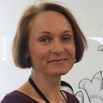
Dr Jacqueline McDermott
Furness Prize for Science Communication Winner 2014
"My colleague suggested that I apply for the Furness Prize for Science Communication. I was a bit unwilling because I have never won a prize before so imagine how delighted I was to be the 2014 recipient! I know that public engagement is very important to the College so I consider it to be a great achievement that they thought my work at Centre of the Cell and with Fruit Fly Collective was outstanding and important. Winning this prize has given me even more motivation to carry on encouraging young people to get into science and to help improve communication within families affected by cancer."
-
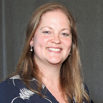
Katy Heaney
Furness Prize for Science Communication Winner 2013
"I was delighted to be nominated for The Furness Prize to celebrate a year of great success for Lab Tests Online-UK and in recognition of public engagement work I have done since beginning my NHS career. Since winning the prize, I have recruited 3 members to the promotional and marketing team at Lab Tests Online-UK and recently attended the National Association for Patient Participation conference to speak directly to Patient Participation Group representatives about how we can support their GP practices. I am really excited to be planning our 10 year anniversary celebrations in October and look forward to being part of National Pathology Week and working with the college team."
-
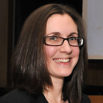
Helen Turner
Furness Prize for Science Communication Winner 2012
"I agreed to be nominated for The Furness Prize as I felt it would be a great way of highlighting the range of public engagement events I have been involved in over the past few years, and how enjoyable public engagement can be. The events have ranged from small hospital displays, to open days, all of which have given me the chance to interact with the public about pathology. Since winning the prize, I have continued my involvement in public engagement. The prize has opened up new areas of public engagement, such as the Aberdeen May Festival 2013, and building links with Aberdeen University. I'm very grateful to the College for the support they have given to public engagement over the last few years, and hope it continues well into the future."
-
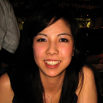
Dr Vanessa Wong
Furness Prize for Science Communication Winner 2010
The winner of the 2010 prize was Dr Vanessa Wong for her involvement in a range of public engagement activities, including events organised by the College.
-
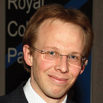
Dr Chris Smith
Furness Prize for Science Communication Winner 2009
The inaugural prize was awarded to Dr Chris Smith for founding The Naked Scientists radio show, podcast and website.

